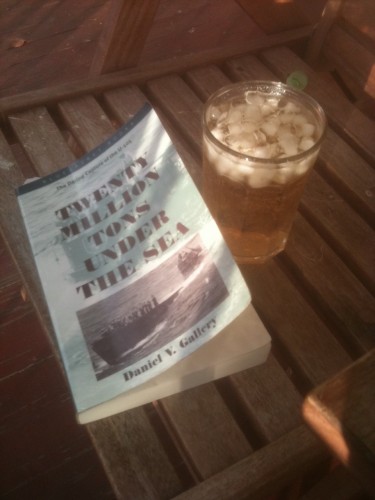Today I read an article about the fact that the German government can issue debt with a negative yield.
Germany sold six-month treasury bills at a negative yield for the first time amid demand for the debt securities of Europe’s biggest economy as a haven from the sovereign debt crisis roiling the region. The government auctioned 3.9 billion euros ($4.98 billion) of securities maturing in July at an average yield of minus 0.0122 percent, the Federal Finance Agency said in an e-mailed statement today. It was the first time it sold the securities at a negative yield, Joerg Mueller, a spokesman in Frankfurt, said in a telephone interview. The Netherlands sold 107-day bills at minus 0.007 percent on Dec. 12.
Thus purchasers are paying the German (and Dutch) governments for the privilege of lending them money.
Meanwhile, Italy is having a tough time finding buyers for its bonds. In order to sell debt, the yield is now above 7%, a line that (for some reason) in the popular press is read as the dividing line for “unsustainable”, kind of like the “Mendoza line” for baseball batting averages.
Italian bond yields rose above 7% on Friday (Dec 23) as worries about the government’s debt problems resurfaced. The yield on 10-year Italian government bonds edged up to 7.04%, after falling below 6% earlier this month. Italian yields first topped 7% in November amid fears that Italy could fall victim to the same debt crisis that led to bailouts for Greece, Ireland and Portugal.
On the face of it, this seems odd. Germany and the Netherlands are issuing bonds in Euros, just like the Greeks, Italians, Ireland and Portugal. Theoretically, all of these countries have the same “backstops” built into the Euro, and there is no exit mechanism.
The debt market is saying something different than what the politicians are saying – the debt market doesn’t believe the hype and, when the dust settles, they want to be holding paper from the creditworthy countries (Germany and the Netherlands) and not the PIIGS (the above countries plus Spain).
Back when Dan and I were in college we had a friend nicknamed “Strohs”. Since we were all very poor back then when we played poker often people used “markers” instead of cash. At the end of the game (generally when we ran out of beer and / or someone passed out) you might hold cash or you might hold “markers” which were really IOU’s from each person at the game. “Strohs” markers were a deck of cards marked with the ubiquitous “Dogs playing poker” picture, and thus at the end of the game if you held his marker, they were “Dogs”. “Strohs”, while a good friend of ours, wasn’t an especially credit-worthy guy (at the time). He earned his nickname by showing up for college with some clothes in a hefty trash bag and a pallet of Strohs 30 packs with which he filled his entire closet top to bottom.
So as the night wore on, if you held “Dogs” in your pile of chips and markers, your betting became especially reckless. It was common to say “I’ll raise you a bucket of dogs” which probably meant you were bluffing because if you lost all you did was remove the markers with which payment was unlikely to happen out of your stack of chips, for the promise of winning “real” markers (equivalent to the German debt above) or actual cash, instead.
For years books and magazines have focused on “yield” and also the credit worthiness of individual companies and (mostly) ignored currency risk. A friend of mine in the investment business talked about a customer who bought a huge Australian debt position and their piddly yield was irrelevant as currency gains from the Australian dollar (which I wrote about here) drove the position to a huge gain, when translated back into (weak) US dollars. Obviously this trader was ignoring yield and betting on currencies.
This is what appears to be happening today. When Europe’s dust cloud settles, people don’t want to be holding “a bucket of dogs” backed by promises from PIIGS governments’, they want the equivalent of the old Deutschmark from Germany. That is why they are essentially ignoring yield and accepting a negative yield from one country and demanding a 7% yield from another country ostensibly backed from the same currency.
Cross posted at LITGM
